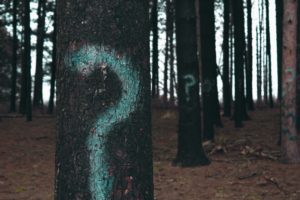by: Laura Dennis
“So many unanswered and unanswerable questions.” That’s how my December 29 journal entry ended. One month later, not much has changed. The same old questions are still chasing each other round and round in my head, all thanks to Saroo Brierly’s A Long Way Home.
Haven’t heard of it? What if I tell you it’s the memoir that inspired the recent art-house feature, Lion? Still nothing? Learn more about Saroo here – http://www.npr.org/2014/06/22/323355643/with-memories-and-online-maps-a-man-finds-his-way-home – and the movie here – http://www.imdb.com/title/tt3741834/
If you don’t have time for an Internet rabbit hole, the nutshell version of the story  is this: a four-year-old Indian boy is separated from his family, falls asleep on a train, spends time as a street child, and winds up in an orphanage. He is soon adopted by an Australian couple who go on to adopt a second child, Mantosh. Years pass, Saroo starts to search, and search, and search until one day he finds…his birth family.
is this: a four-year-old Indian boy is separated from his family, falls asleep on a train, spends time as a street child, and winds up in an orphanage. He is soon adopted by an Australian couple who go on to adopt a second child, Mantosh. Years pass, Saroo starts to search, and search, and search until one day he finds…his birth family.
Given that I adopted my three kids from India, it’s not hard to imagine why I might want to follow Saroo’s story wherever it might lead. Where he finds answers, however, I get only questions. Here are just a few.
- Does any child ever truly escape early childhood trauma and neglect unscathed? ATN readers know the obvious cases, the various syndromes and disorders, the visibly maladaptive behaviors such as violence, deception, and theft. Saroo hints at some of these in his younger brother. But Saroo has his issues too. He can’t focus, settle, what we might call grow up. Yes, these things could be explained by temperament or maturity, but then again, maybe not. Where does developmental trauma end and “normal” development begin?
- What’s it like to be the sibling of a seriously challenging child? Saroo alludes to the times he felt overlooked, left to his own devices as his parents attended to his brother’s more visible needs and behaviors. But do we know? Can we know his heart for sure? And if we could, what would we do with the hurts we find?

- How do you form an identity when you have neither name nor place of origin? Sure, you might cobble something together, and like Saroo, seem relatively fine, but stories with unclear beginnings stand on pretty shaky ground. How do you build a self out of that, particularly a self you can rely on?
- What do you tell children who aren’t likely to get lucky like Saroo, that barring an actual, bonafide miracle, Google Earth isn’t going to help? Is there a way, any way at all, to help a child process that level of loss? After all, you’re not just asking them to accept reality; they’re going to have to abandon their fantasies too. Which is worse: false hope or lost hope?

See what I mean about unanswerable questions? There are plenty more where those came from, and they never really go away. That might sound painful, and it is, but in its way, it’s also a sort of gift, the gift  of empathy. Can we fully know how another feels? Of course not. But we can understand how complicated life feels when there are fundamental things you simply do not know. I might not have answers, but I am learning to live in the space of not knowing. Maybe I will see you there.
of empathy. Can we fully know how another feels? Of course not. But we can understand how complicated life feels when there are fundamental things you simply do not know. I might not have answers, but I am learning to live in the space of not knowing. Maybe I will see you there.


